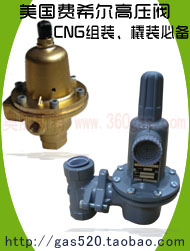位置:首页 > 燃气资讯 > 天然气汽车的增长将有NG定价的影响微
天然气汽车的增长将有NG定价的影响微乎其微,报告学联NGV Growth Will Have Minimal Impact on NG Pricing, Reports ACSF
浏览次数 1130 , 日期 2013-04-18 , 燃气设备 加入收藏
报告突出了机会,远离石油为基础的燃料多元化,美国的交通运输部门
美国清洁天空基金会(学联)已经发表了一份新的报告- 驾驶天然气:天然气汽车的燃料价格和需求的方案,到2025年 -这在未来十年内找到一个过渡,以天然气为燃料的重型和轻型车辆对天然气价格的影响微乎其微。该报告使用三种情形来计算潜在的天然气占天然气汽车(天然气汽车)的需求和价格的影响。美国B42R天然气调节阀,直燃式调压器
C.装订,学联组织的首席执行官和联合报告的作者格雷戈里说:“我们发现了天然气汽车天然气需求的估计水平,即使在最乐观的情况下,占2025年只有大约2%的整体市场,” 。“增量燃料价格上涨,这种高增长的情况下,只有约25美分,每百万英热单位,或5%。”
“这主要是因为我们预计在未来十年内天然气汽车增长提供足够的时间供应和基础设施发展跟上需求的步伐,从而中度任何增量的天然气价格影响,”装订。
学联的乐观增长的情况下包括两个轻型和重型天然气汽车的高采用率。在这种情况下,运输部门的天然气需求增长57十亿立方英尺(BCF)在2025年在2013年至711亿立方英尺,相当于大约2.3%的年总需求量。到2025年,其中48万顷重型卡车,估计大约2.4万天然气汽车在道路上的场景。整个场景的影响对2025年天然气价格为额外的3美分至27美分,每百万英热单位。
报告强调了机会,以分散美国的交通部门,远离石油为基础的燃料。目前,全国93%的运输燃料是石油的基础上,使经济容易受到油价冲击。在报告的最高的天然气汽车增长的情况下,超过180万桶石油燃料,到2025年天然气流离失所二〇一三年至2025年累计近1亿亿桶石油消费避免。
报告的合著者帕特里克·比恩说,“我们的分析应该给企业,消费者,监管机构和政治领导人的信心,一个合理的过渡到天然气汽车可以实现能源安全的目标,而天然气为燃料的价格和竞争的影响最小。”
该报告还发现,柴油和汽油相比,压缩天然气(CNG)和液化天然气(LNG)的零售价格将保持吸引力即使天然气价格显著增加。目前,CNG零售价格的20%左右是由于原料天然气成本。即使天然气价格一倍,从$ 4/MMBtu $ 8/MMBtu,商品CNG零售价格的组成部分将是40%左右,和CNG将耗资约$ 2.20每加仑汽油当量。
Report highlights the opportunity to diversify America’s transportation sector away from petroleum-based fuels
The American Clean Skies Foundation (ACSF) has published a new report — Driving on Natural Gas: Fuel Price and Demand Scenarios for Natural Gas Vehicles to 2025 – which finds a transition to natural gas-fueled heavy duty and light duty vehicles over the next decade will have a minimal impact on natural gas prices. The report uses three scenarios to calculate potential natural gas demand and price impacts attributable to natural gas vehicles (NGVs).
“We found that the estimated level of natural gas demand from NGVs, even under the most optimistic scenario, accounted for only about 2 percent of the overall market by 2025,” said Gregory C. Staple, ACSF’s CEO and co-author of the report. “And the incremental rise in fuel prices for this high growth scenario was only approximately 25 cents per MMBtu, or 5 percent.”
“That’s largely because we expect the growth in natural gas vehicles over the next decade to provide adequate time for supply and infrastructure developments to keep pace with demand, and thus to moderate any incremental natural gas price impact,” Staple added.
ACSF’s optimistic growth scenario included high adoption rates of both light duty and heavy duty NGVs. In this scenario, the transportation sector’s natural gas demand grew from 57 billion cubic feet (Bcf) in 2013 to 711 Bcf in 2025, which equates to roughly 2.3 percent of total demand that year. The scenario estimated roughly 2.4 million NGVs on the road by 2025, of which 480,000 are heavy duty trucks. The effect on 2025 natural gas prices across the scenarios ranged from an additional 3 cents to 27 cents per MMBtu.
The report highlights the opportunity to diversify America’s transportation sector away from petroleum-based fuels. Currently, 93 percent of country’s transportation fuel is petroleum based, leaving the economy susceptible to oil price shocks. In the report’s highest NGV growth scenario, more than 180 million barrels of petroleum fuels are displaced by natural gas in 2025 and almost 1 billion barrels of oil consumption avoided cumulatively from 2013-2025.
Report co-author Patrick Bean said, “Our analysis should give businesses, consumers, regulators and political leaders confidence that a plausible transition to NGVs can achieve energy security objectives while having minimal impact on natural gas prices and competition for the fuel.”
The report also found that retail prices for compressed natural gas (CNG) and liquefied natural gas (LNG) will remain attractive compared to diesel and gasoline even if natural gas prices increase significantly. Currently, about 20 percent of the retail CNG price is attributable to the raw natural gas cost. Even if natural gas prices double from $4/MMBtu to $8/MMBtu, the commodity component of retail CNG prices will be about 40 percent, and CNG will cost about $2.20 per gallon of gasoline equivalent.








